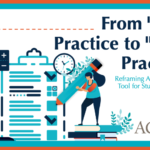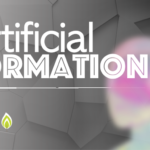Each year, freshly minted graduates join the work of Christian student development as new professionals. Working at institutions across the country in a variety of different roles, these new professionals work quickly to transfer the theoretical knowledge of their graduate programs to the real situations they face from the moment students return to campus.
Although this can make for a stressful first few months in the profession, it also leads to some phenomenal learning opportunities. Not only do these new professionals make fresh connections between theory and practice, but they also have fresh eyes with which to see and evaluate our existing community of practice. These fresh eyes typically last the first few years on the job before a professional gets fully socialized into the assumptions of professional practice.
I’ve recently asked a small sample of relatively new professionals to respond to a set of questions about their experience in the field thus far. Their comments help us see our Christian student affairs work in new ways because it is still new to them—it is not assumed. Their comments remind us to reflect on our motivations for entering the field. They remind us on the very real sources of stress and burnout. They remind us of the joys of seeing the Lord work in the lives of our students. They remind us of the strengths of our field and where we still need to grow. And, finally, they offer insights for future professionals.
I hope you will take some time to reflect on the perspectives these new professionals offer while also considering how you might respond to these questions yourself.
1) What is your current role and how long have you worked in that role?
Jessica J, Assistant Director of Orientation and Student Activities, 1st year professional
Luke S, Residence Director, 3rd year professional
Emily W, Resident Director, 1st year professional
Bethany F, Residence Hall Director, 2nd year professional
2) What motivated you to pursue a job/career in student development?
Jessica J
I was heavily involved in student leadership as a student and was mentored by the same supervisor (Laura) for three years. I did not have a clear understanding about what I wanted to do for a career, but I loved planning events, working with other student leaders, and making a difference on campus. During my senior year, I realized that working in the university was a potential career path. I wanted to be able to have the same impact on students that Laura had on me and be able to care for them and develop their potential.
Luke S
My residence life experience in undergrad was a major component in pursuing this profession. I had great mentors from Student Development while being an RA. This developed my passion for working with college students.
Emily W
My four years serving residential students at a Torchbearers Bible school motivated me to pursue work in Student Development so that I could continue investing in the lives of students during the formative years of college. I’m especially interested in helping them as they prepare to transition from college to life after graduation.
Bethany F
I decided to pursue a career in student development because I wanted to work within a field that I felt had significant impact. Working with students during this transformative time of their life gives me purpose within my role that I find invaluable when thinking about the career I want to build throughout my life.
3) What are you finding gives you energy and what drains you?
Jessica J
I am most energized when I get to work with other people. I worked very independently during my apprenticeship in graduate school, so I really enjoy getting to meet with other departments and working collaboratively with other staff members. I oversee 28 student leaders and feel so energized after our team meetings. I am energized by researching what other schools do well and incorporating their ideas into our programming. Our office has a large lobby that serves as a student hang out space, so it is always fun to hear laughter and conversations between students from my office.
Anything with budgeting drains me. I do not think that our accounting systems are very user friendly to anyone who did not major in accounting. I have found that I need to schedule my day with tasks. If I am in my office without anything on the calendar, but a long to-do list, I am not motivated to do the work. If I schedule an hour or so per task with breaks in between, I can get a lot more done.
Luke S
Connecting with students in day-to-day life and hearing their stories is great source of energy for me. The other side with that is the constancy of the job that tends to be draining. Not having the ability to physically disconnect from the work can lead to becoming burned out if one is not aware of it.
Emily W
I am energized by the opportunities that I have to connect with and learn about my students’ stories, learning from others working with me in Student Development, and by leading and developing my team of eight Resident Advisors.
Navigating the challenges of Covid with a small Resident Life team while responding to increased numbers of mental health emergencies on campus has been very draining.
Bethany F
I find energy within my position when I interact with students who are eager to dive into their life’s purpose and calling in Christ. It’s inspiring and validating when student’s see the bigger picture of serving and reflecting the light of Jesus in their communities.
I find it draining, especially during COVID times, to walk with students through personal crisis situations. While that work is important, useful, and necessary to students, it can be emotionally taxing to constantly have students who rely on you to get the help that they need.
4) Being a relatively recent graduate of a graduate program in student affairs, what theories or ideas (if any) have been helpful in your work so far?
Jessica J
After graduate school, I have noticed that I tend to think about my work through the lens of research. It is less likely that I will think about specific theorists every day, but I am constantly thinking about how we can evaluate our programming against what has been studied. I am also trying to implement thoughtful research and assessment practices so we can continue to make our orientation experience better. I can tell that my thought processes are different because of what I learned through graduate school, even if I am not pointing at specific theories.
Luke S
I have found James Marcia’s theory (1966) to be particularly helpful when working with students. Thinking through how students coming into college have a lot of foreclosed knowledge and challenging that in a healthy way to encourage growth has been very helpful.
Marcia, J. E. (1966). Development and validation of ego-identity status. Journal of Personality and Social Psychology, 3(5), 551–558. https://doi.org/10.1037/h0023281
Emily W
As a new Resident Director, the overlap between graduate school and the work I am doing currently is vast. I find myself continually returning to Sanford’s (1966) theory of challenge and support, which articulates the significance of balancing the challenges that students face during their college years with support for healthy development to occur. I also find it helpful when I face student conduct and care situations to frame these conversations within the larger perspective of training and developing students to become better equipped to navigate life after they graduate.
Sanford, N. Self and Society. New York: Atherton Press, 1966.
Bethany F
Personally, I’m not a huge theory buff. I find my practical experience within my graduate assistantship helped me move through this first year of full-time professional work more than my formal graduate classes did. If I had to pick a theory, I would say Schlossberg’s theory of transition has been the most applicable when both working with students but also for me as a professional moving through different transitional periods.
Schlossberg, N. K. (1981). A model for analyzing human adaptation to transition. The Counseling Psychologist, 9(2), 2.
5) Can you tell me a story about a time where Christ enlivened your work thus far? (an opportunity you had to integrate your faith with your practice?)
Jessica J
We went on a student leadership retreat before school started. One of the traditions of my student leadership group is to share life maps and stories during retreat. I wanted to set the tone for the exercise, so I shared my life map with my students before they started sharing theirs. I want to be the type of leader that would not ask my students to do something I am unwilling to do myself. After I shared my story, the students broke up into their small groups to share their life maps. I had one student come up to me later in the evening and open up about her life and struggles with her family that overlapped with my story. I had known this student for only a few days at this point, but it was just so clear that the Lord had worked through the conversation. It was so humbling that she trusted me with her story, and that I was able to begin to walk with her through a truly impossible situation in her life. It was a sweet reminder that Christ puts us in the right positions at the right time. If we allow him to use us, he can build connections between his people.
Luke S
In my RA one-on-ones I often ask about various areas of their lives as a check-in. I had one RA who was struggling spiritually, and we were able to talk through what it looks like to weave faith into everyday life. The thing that stuck out to me was that faith is so essential to every area of our lives and seeing students begin to grasp that and walk them through what that looks like has been very powerful. Using my faith story in these meetings has been a very special way for me to invite Christ into the active work I am doing.
Emily W
I feel blessed to be serving at an institution where the integration of my faith and practice occurs naturally every day, which I don’t say flippantly. A recent example is that my Resident Assistants lead a weekly program focused on prayer and praise, which often includes studying scripture with the residents of their hall. To equip them in facilitating this programming, my team recently practiced inductive Bible study methods to study the background and historical context of the book of Philippians. Sitting in a circle in my living room and diving into scripture in this way felt like a sacred moment of integrating our faith and the work that we do, and it feels even more powerful when I think of each Resident Assistant taking these skills and implementing them in their weekly times with residents.
Bethany F
In one of my previous roles at a public institution, I navigated a crisis situation with someone I had built a strong relationship because we both identified as Christians. This was the first situation I handled where I felt comfortable and able to really lean on Jesus throughout because I knew this person’s faith. There wasn’t much I could do other than support this person, and the best way I knew how was to pray with them. In a time of heightened emotions and chaos, this moment of prayer brought a stillness and sense of peace. From that moment on, I knew I wanted more freedom to do this with students which led me seeking out the position (at a faith-based institution) I’m in today.
6) From your perspective as relatively new professional, what do you think is the greatest strength of student development at Christian institutions?
Jessica J
Christian institutions can have a redemptive view of students. This view is rooted in the theological frame, and student affairs professionals can be part of that redemption and restoration.
Luke S
I believe that student development in particularly Christian institutions helps to break down the compartmentalization that we often do with our lives. Re-working our outlook on life to begin with our identity in Christ allows us to approach life in a Christ-centered, God-honoring way. I am very passionate about this holistic faith integration, and I believe that Christian student development does a wonderful job of promoting this way of life.
Emily W
For me, the greatest strength of student development at a Christian institution is being of the same mind, having the same love for the Father, being united in the Spirit, and having a shared purpose (Philippians 2:2). I find my work incredibly meaningful because I know that despite the different work that individuals are engaged in, we are working towards the same goal of helping students to encounter and grow in their relationship with Christ.
Bethany F
I believe the greatest strength of student development within Christian institutions is the investment these institutions make in the student as a whole person. It can be argued that all colleges and universities do this in some form or fashion, but those places often leave out the critical component of a student’s faith or spirituality. When a religious institution pours into its students, it formulates plans and resources based on the truth of what all components of a student life really looks like, and that includes their faith walks. These schools actually devote attention to the holistic student.
7) If you had a magic wand and could change one thing about student development at Christian institutions what would you change?
Jessica J
Christian institutions can tend to be legalistic about their students’ actions. I see this when it comes to our policies on sexual intimacy or privacy hours. Instead of engaging in effective conversation about Christian ethics, we simply include policies in handbooks meant to steward moral behavior. This is problematic when it comes to issues of conduct or some Title IX cases. Students are so afraid about policy violations, that they may not feel comfortable sharing major issues or causes for concerns. I think [my institution] is getting better about having the conversations about the reasoning for policies. Christian institutions as a whole could be better about coaching students toward their desired moral state, rather than focusing on policy violations.
Luke S
I would love to see an elevation to importance of having well trained student development professionals filling roles. I have seen an emphasis on ministry, which is important, but this seems to lead to a lack of knowledge of and focus on the essential student development theory that helps guide the practices within institutions of higher education.
Emily W
I would change the tension that often exists between faculty and student development staff. We ought to more fully reflect the gospel to our students by showing a stronger sense of unity. I believe this unity would have a powerful impact and could create a more cohesive and integrated learning experience.
Bethany F
The “happy Christian” mentality of life being perfect and constantly good can sometimes have a damaging affect when working within student development. I would change the way we as professionals sometimes feel like we have to be “on” 24/7 when developing our students. Students relate best when those supporting them are real and authentic, and this is something that we lack sometimes within these settings.
8) What advice would you give to someone considering a career in student development?
Jessica J
This work is about the hallway conversations as much as it is about the work that happens around the table. The task lists matter in creating excellent programming for students, but the most rewarding moments happen in my unplanned interactions with students. Learn to be interruptible.
Luke S
Reach out to professionals in the field to learn their personal story and experience in student development. Learn about the various areas of student development to see what a good fit might be and then look to do a graduate program in that area.
Emily W
I have two—first, seek to build yourself a group of other professionals working in the field of student development that are starting out like you are, both at your institution and other institutions so that you have a wider perspective. You will need this group to encourage you, support you, challenge you, and laugh with you about your work. Second, pray for and pursue opportunities to be mentored by others who have worked in higher education longer than you have. Their insights will be vital.
Bethany F
The work you do in developing students every day will at times feel exhausting, but it will be one of the most rewarding parts of your life. Reflecting on the difficult situations I have been through in this field don’t deter me from encouraging others to choose this life, because even in hard times, you can make real impact. Within a Christian institution, those impactful moments mean so much more because the purpose isn’t for the world’s benefit, but the Kingdom’s.
9) What advice would you give to someone currently on the job market in the field of student development?
Jessica J
I would encourage someone on the job hunt to consider what they really want out of their job. For me, I was really motivated by the workplace culture and working with other people. However, some of my cohort mates were more motivated by the type of job or location. Your reason can be different than other people, and that is okay. As you are interviewing, do your best to communicate why you care about students and why you think that this work matters.
Luke S
Try to schedule a meeting with a VP or Dean in student development at the institutions you are interested in working for. This is a great way to learn the values and philosophies of the division. Familiarize yourself well with the student guidelines of institutions to determine your ability to work within that institution’s framework.
Emily W
I worked at the center for Vocation and Career for two years while I studied for my masters, and my advice would be to create a LinkedIn profile that you update regularly and then use to network with individuals who are in positions like those you wish to enter in student development. Keep in mind that something like 80% of jobs are unlisted and get filled by word of mouth, and that number has only grown during the pandemic!
Bethany F
Find an institution that truly values and represents the things you hold closest to your heart. You will devote so many hours of your life to your career in this field, so find a place that excites you and satisfies your soul. Trust me, you will know when you’ve found the perfect fit, it feels like a moment of coming home.
Thank you to Jessica, Luke, Emily, and Bethany for sharing your thoughts and experiences with us!






